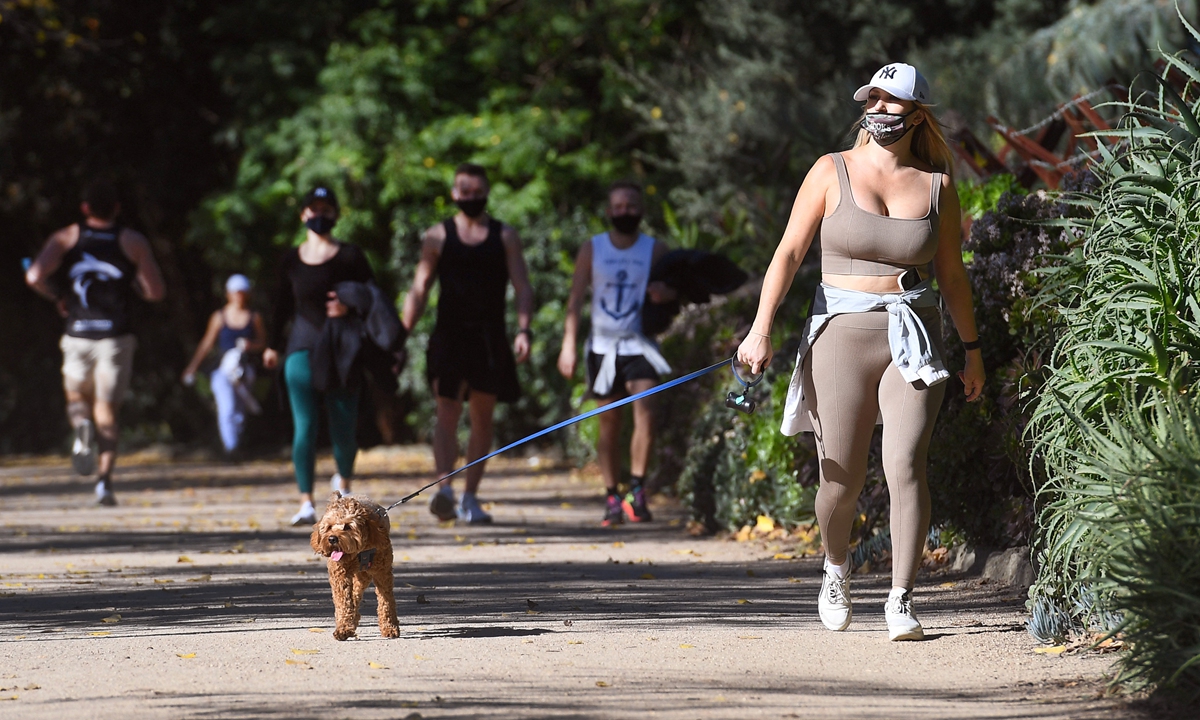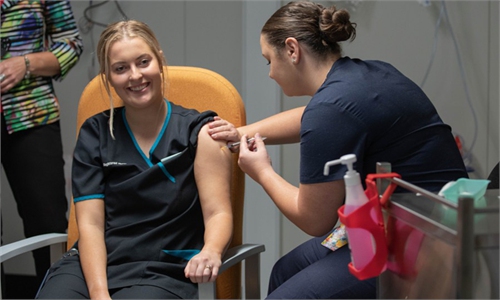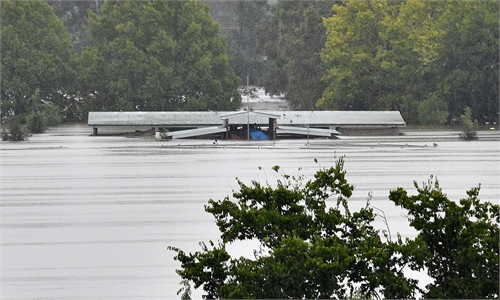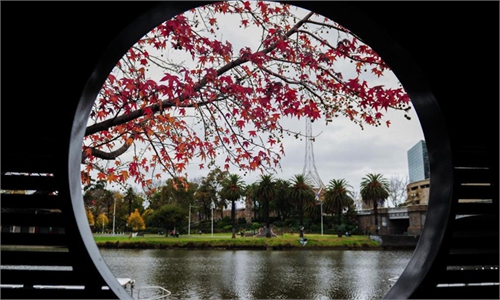Australia recommends no AZ jab on under 60s

People exercise in Melbourne, Australia on Wednesday with the coronavirus lockdown of the country's second-biggest city to be extended by another seven days, authorities announced as they attempt to stamp out a cluster of cases in the city. Photo: AFP
Australia recommended that AstraZeneca's COVID-19 jab should not be given to people under 60 on Thursday, a fresh blow to the country's glacial vaccine rollout.Health Minister Greg Hunt said concerns over possible links to blood clots meant Pfizer was now "the preferred vaccine" for everyone under 60 years old.
Australian authorities had already restricted the AstraZeneca shot to those over 50 in April. Thursday's further restriction came after a 52-year-old woman died of blood clotting after receiving the jab.
Hunt admitted the move would "challenge" the country's already badly stalled vaccine rollout, which has seen just 3 percent of its population of 25 million fully inoculated so far.
Facing growing public disquiet over the slow rate of jabs, the conservative government also announced Thursday that a senior army officer, Lieutenant General John Frewen, would lead the federal vaccine rollout, now dubbed operation "Vaccine Shield."
The move is likely to have a marginal impact, as responsibility for inoculations has largely fallen to Australian states.
Australia has invested heavily in the AstraZeneca vaccine, developing a facility to produce 50 million doses locally.
Purchases of other shots have been more limited and have faced multiple delays, forcing the government to abandon its target of vaccinating all adults by September 2021.
Australia has only a few locally transmitted cases of COVID-19 and has closed its borders to all but a handful of foreign travelers.
AFP



